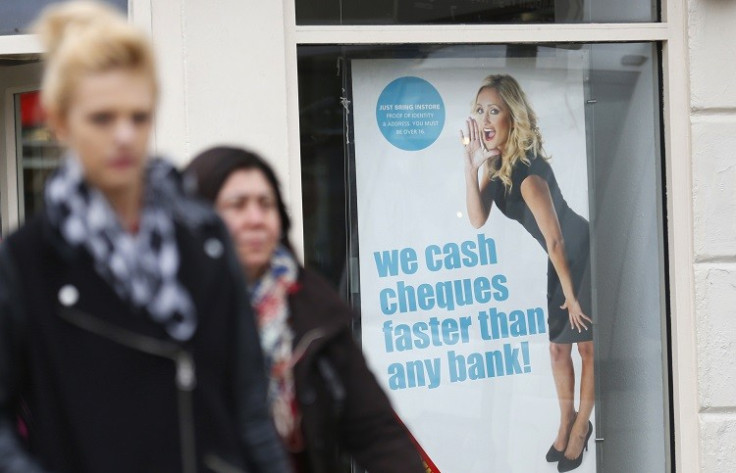Payday Loan Companies Wonga, QuickQuid and Mr Lender Face MP Grilling

Britain's largest three payday lending companies will appear before the Business, Innovation and Skills Select (BIS) Committee as the government cracks down on the industry.
Wonga, QuickQuid and Mr Lender will also have to face the Financial Conduct Authority (FCA), Office of Fair Trading (OFT) and Jo Swinson MP, Minister for Employment, Relations and Consumer Affairs at BIS.
The OFT hands over regulation of the sector to the FCA in April 2014.
The FCA has already said it plans to possibly ban advertising and how quickly loans can be made by payday lenders, as part of its crackdown on the industry, which lawmakers have described as 'preying on the vulnerable'.
The UK payday lending sector, which is worth £2bn ($3bn, €2.3bn) in the UK. The sector in 2013 has doubled from that of 2008 to 2009.
Current figures show that this corresponds to between 7.4 and 8.2 million new loans.
Despite these loans being described as one-off short term loans, costing an average of £25 per £100 for 30 days, up to half of payday lenders' revenue comes from loans that last longer and cost more because they are rolled over or refinanced.
Interest rates on the short term loans can reach highly inflated levels. For example, one of the UK's largest payday loan companies, Wonga, bumped up its representative APR of 5,853% on its website this month.
Payday Lenders Defend the Industry
Wonga's chief operating offiver Niall Woss told Newsnight on 4 November that "the vast majority of our customers are not presented. We think the voice of the silent majority of our customers is not being heard; the voice of the people who actually use our service."
"There are a million customers, the vast majority of whom are happy and their voice is not being heard.
"I'm very confident that we show everything [about our service] as clearly and transparently as we possible can. I'm sure the regulators will take the opportunity to tighten up practices across all of the industry."
"The reality is that if people don't pay back the money they have borrowed then of course that may impact their underlying credit rating. There are many commentaries on our business that are myths about our business and we are inviting people to look for themselves."
Swinson Cracks Down on Payday Lending
Swinson and the Britain's Business Secretary Vince Cable meet the Archbishop of Canterbury in August, to forge new draft legislation and guidelines for credit unions, in order to protect vulnerable consumers from 'predatory' payday loan companies.
Speaking exclusively to IBTimes UK on camera, Swinson said that BIS are creating a new set of robust practices to make sure consumers can protect themselves against falling into a debt spiral.
"We are very keen that credit unions are expanded as they are important way of lending to a community that benefits local people," said Swinson to IBTimes UK.
"The government has already committed £38m to help credit unions modernise and some of the challenges they face, by going up against the likes of payday lenders, include infrastructure issues.
"They also face a restriction on the level of interest rates they are allowed to charge. We are now going to bump this up to 3% a month, from 2% a month."
© Copyright IBTimes 2025. All rights reserved.






















